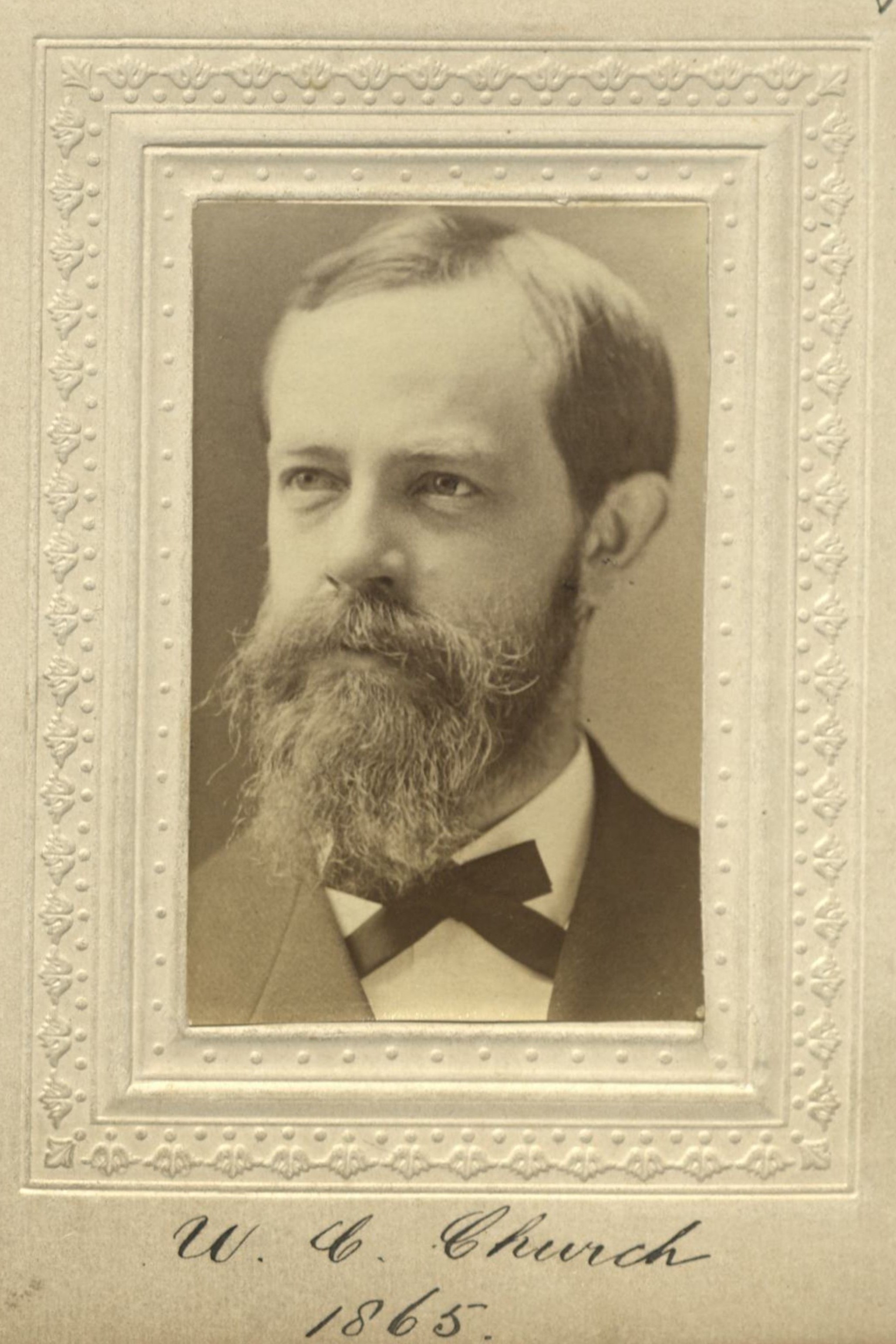Journalist/Army Officer
Centurion, 1865–1917
Born 11 August 1836 in Rochester, New York
Died 23 May 1917 in New York (Manhattan), New York
Buried Sleepy Hollow Cemetery , Sleepy Hollow, New York
, Sleepy Hollow, New York
Proposed by Thomas Hitchcock
Elected 4 February 1865 at age twenty-eight
Archivist’s Note: Brother of John A. Church and Francis P. Church; uncle of John A. Church Jr.
Proposer of:
Seconder of:
- John Bigelow Jr.
- Frederick H. Gibbens
- Edward W. Lambert
- Edward Clark Marsh
- Charles Henry Phelps
- George W. Soren
- Edwin C. Sturges
- Samuel E. Tillman
- Leonard Wood
- George H. Yewell
- Edmund L. Zalinski
Supporter of:
Century Memorial
William Conant Church was but a year or two younger than Manton Marble, and had been engaged, before the Civil War, in editing and publishing the New York Chronicle and the New York Sun. He was not yet twenty-five years old, and was in Europe when the war broke out. Returning at once, he acted as Washington correspondent of the New York Times while awaiting an appointment as Captain of United States Volunteers. He served in Sherman’s division and later on the staff of General Silas Casey, taking part in the battles of Williamsburg and Fair Oaks. He was wounded in the latter engagement. For his services he was brevetted Major and then Lieutenant-Colonel of Volunteers. He resigned from the army in order to establish an army paper, and with his brother Francis P. Church, our late fellow-member, founded the Army & Navy Journal in 1863; also the Galaxy in 1868, which afterwards was merged in The Atlantic.
It is safe to say that Colonel Church’s knowledge of military affairs in this country surpassed that of any other journalist. This, with his many decades of editorship, his skill as a writer, and his great and merited reputation for accuracy and truth made him our foremost military writer. His natural temper and military life gave him a keen appreciation of fact and a corresponding detestation of lies and bunkum. He stood always for a real and not a paper preparedness. There was a genial pugnacity also in this rock-set and sterling character. Here, in The Century, he was a constant attendant and not infrequent speaker at our monthly meetings, which we somewhat younger men must still try to keep from impoverishment in spite of the death of so many loved and honored seniors.
Henry Osborn Taylor
1918 Century Association Yearbook

